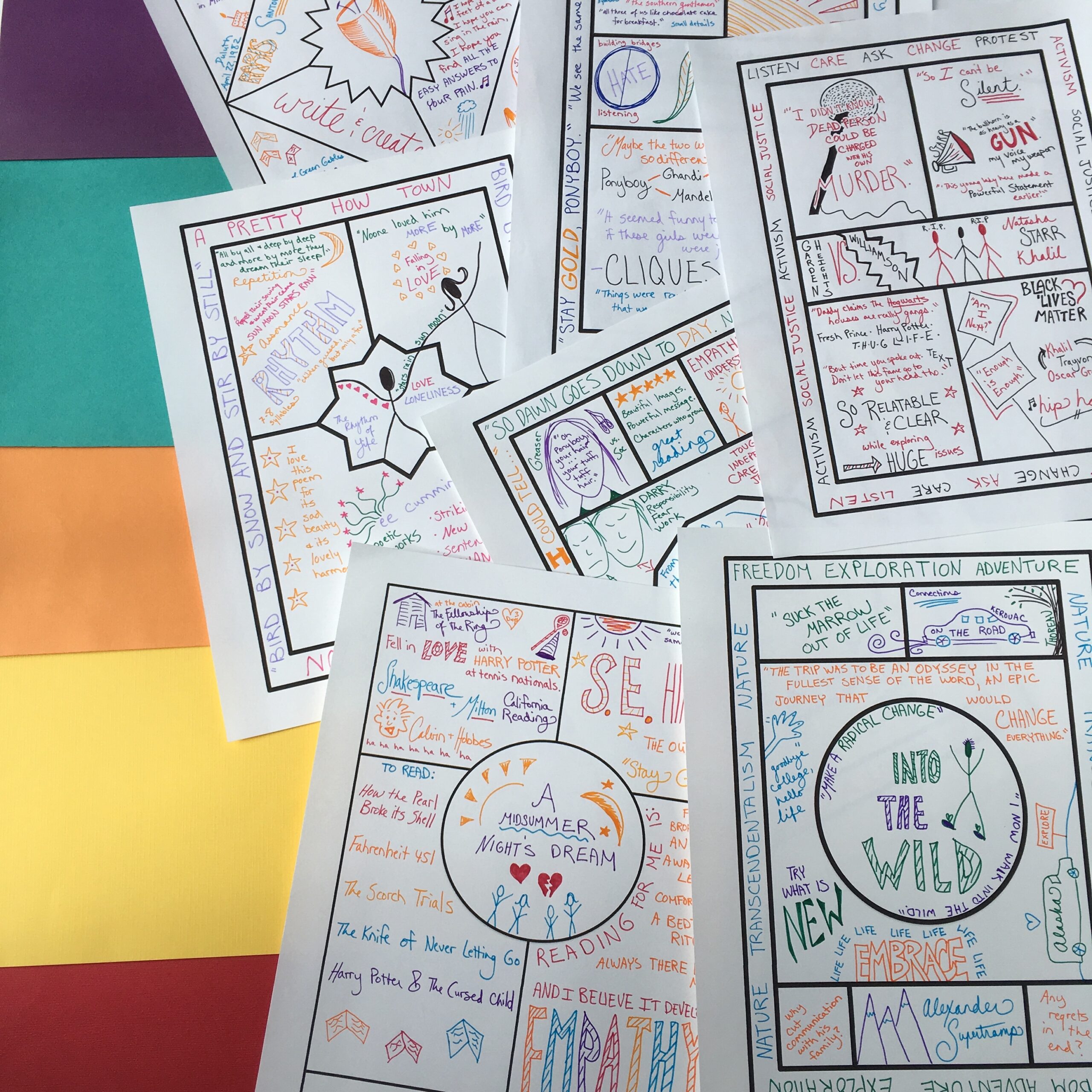
Do your students think of the revision process as a combo of spellcheck and Grammarly? Tend to peer edit by scrawling a compliment and circling two sentences that are missing periods in their revision process.
Yeah, they’re not alone. Honestly, I didn’t really get the revision process as a student either. It sort of felt like I wrote the paper I was going to turn it in, then I’d “polish” it a little by fixing any tiny surface mistakes so I could turn it in.
Students are busy people, juggling family, friends, sports, classes, jobs, the college admissions process, and a complicated world of digital social life that we probably only barely understand.
So unless we can really spell out the revision process for them, they’re likely to think the pretty good paper they felt they wrote in the first place is pretty good enough to turn in.
That’s why today on the podcast I’m going to offer you four blueprint options for helping them do better. Choose the one you love, or try all four.
Before we get started, I want you to know that I’ll be running Camp Creative, The Easiest Roadmap to Student Podcasting, in June. Inside this (free) and fun PD, you’ll get access to the best models, easiest tech, and complete curriculum to get you and your students started with podcast projects. Everything arrives by email, so even if you’re busy the week of June 10-14, you can catch up whenever you get a chance. It just takes 10 minutes a day to go through the materials! You can sign up here.

You can listen in to this episode below, click here to tune in on any podcast player, or read on for the full post.
Revision Process Guide #1: Revision Challenges
You can help kids boost their revision process by offering them a specific guiding challenge to inspire them as they work through a draft. I designed the revision challenge cards below to apply to many types of writing projects at many levels. They invite students to improve their work by reading aloud, imagining counterarguments, cutting fluff, or polishing a piece by stretching just a bit further in one specific area.

You can grab your copy of these cards here, or create revision challenge cards of your own based on your students’ specific needs. If you laminate them before you cut them out, you’ll have a classroom resource you can go to again and again during the revision process.
Try Revision Stations
For an even more structured approach, try creating revision stations. For whatever type of writing you’re working on, you’ll want to develop stations where students can focus on the individual areas you find to be a problem for many students.
You can invite them to visit the stations where they feel they need the most help, and then provide models, information resources, and specific tasks to help guide them through improving the area the station is focused on. You can dive deeper into this strategy with this post, if you wish.


You can find my Argument Revision Stations on TPT here or in the Argument Section of The Lighthouse
Give Peer Editors Specific Tasks
Another option for better revision is to give peer editors more specific tasks as they work. I definitely used to fall into the trap of asking peer editors to circle mistakes and make suggestions in the margins, but that strategy leads to a lot of sparse peer commentary. Student will most likely circle spelling errors and scrawl “good job” across the bottom, unless they’re naturally inclined to be really interested in writing.
Helping peers to know exactly what to do and how to do it will make their lives easier and their revision help much more substantial. I’ve laid out four of my favorite options in this post.

If you’d like your own copy of the peer editing guides above, you can sign up for my free Friday idea emails below and these peer editing guides will be the first thing I send you.
Try using Hyperdocs within the Revision Process
Lately I’ve gotten really interested in how we might integrate all of our writing tips into hyperdocs revolving around any common error students have. I think it’s a fascinating option for speeding up grading, since you could simply cite the hyperdoc students should check to understand their errors instead of writing a full explanation in the comments.
But I also think it could become a core part of the revision process.
Students could bring in a draft, and you could offer them a menu of three hyperdocs like the ones below.


You could then ask them to check through their papers to make sure they’re following the rule of each hyperdoc.
As they checked to make sure their thesis was arguable, for example, they could click into any of the models and tutorials on the hyperdoc to help them improve what they’d written. If you’re also using these hyperdocs as part of your commenting process, you’d create a full circle where the expectations exactly line up with the commenting process.
Wrapping it up with Revision
Remember, as with so many things in the classroom, the key is to guide students in very specific ways through the revision process. When you provide a blueprint, then they can more likely follow it. Try revision challenges, revision stations, specific peer editing guides, or common error hyperdocs to make things easier for everyone!



























